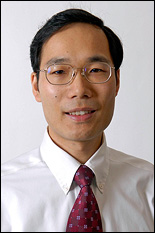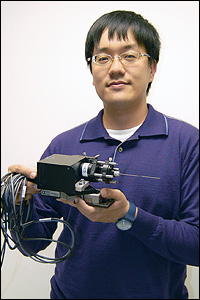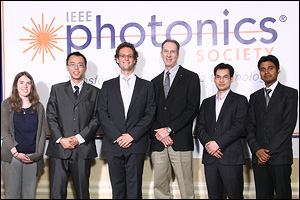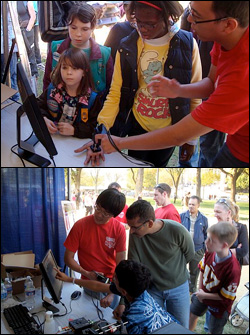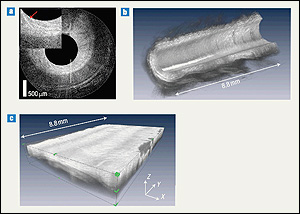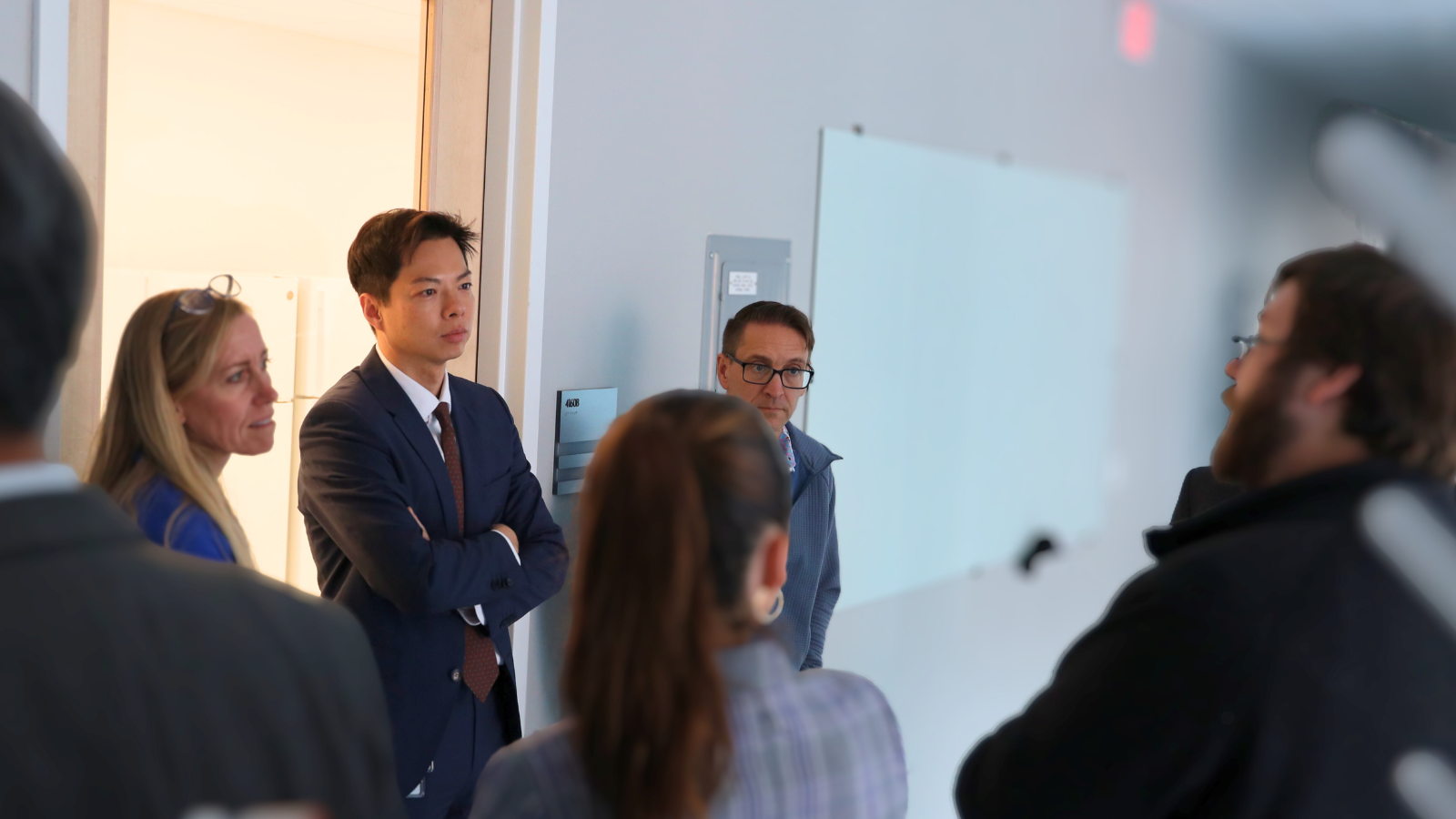News Story
Cancer Detection Research Wins Grant

The earlier breast cancer can be detected, the more likely it is to be treated effectively. According to Chen, only 61% of breast cancers are diagnosed in their early or curable stages. "Conventional needle-based biopsy techniques result in too many false negatives due to sampling errors," he explains. "Image-guided biopsies can improve sampling success rates, but currently those improvements are limited to lesions that are visible using conventional methods such as ultrasound or mammography. These techniques can only provide information about the outward appearance of the lesions. They can't adequately identify small lesions or show their full extent. There is a critical need for high-resolution imaging techniques that can accurately guide biopsy procedures to improve test results."
Chen's solution is based on an emerging technology called optical coherence tomography (OCT), which provides micron-scale imaging of tissue inside the body in real time, and is capable of performing three-dimensional subsurface imaging. When combined with fluorescence imaging, it also enables the visualization of molecular processes such as gene expression and disease-specific molecular interactions, allowing doctors to not only obtain a better picture of a cancerous lesion, but actually watch what it is doing. According to Chen, using OCT results, which can be obtained without having to remove a tissue sample, would be a major advance in cancer diagnostics. When combined with fluorescence molecular imaging (FMI), he says, the results become even more accurate.
"The Clark School's investment in bioengineering for human health is beginning to take hold," says BioE Professor and Chair William Bentley. "Research like Yu's is key in getting the word out that we are engaged in this important field of research."
Founded in 1985 as the Cancer Research and Prevention Foundation, the Prevent Cancer Foundation is dedicated to the early detection and prevention of cancer through its support of cancer research and the education of the general public about cancer prevention. Since its inception it has raised over $106 million to fund research and outreach programs, and has supported 300 scientists nationwide.
For More Information:
Visit Professor Chen's homepage »
Visit the Prevent Cancer Foundation web site »
Related Story:
"Chen Publishes OCT Research in Nature Photonics" »
Published January 15, 2009
